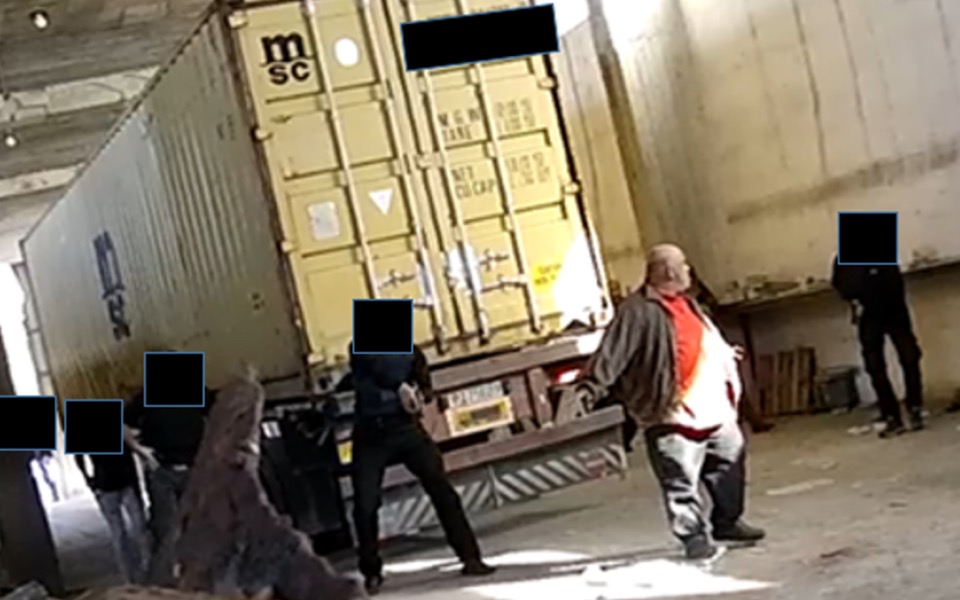Greek, American operation collars ‘merchant of death’

After two meetings in Athens with a US agent who was posing as a weapons dealer, Rami Ghanem returned to the Greek capital in December 2015 to check on his order: 200 American-built automatic weapons, night vision scopes and thermal imaging cameras, among other items. As on the previous two occasions, he was met by an undercover agent from the investigative arm (HSI) of the US Department of Homeland Security.
Ghanem had initially told the “arms dealer” that his clients were in Beirut and the arms were intended for Iraq. The pair drove out to a warehouse in Aspropyrgos, west of the Greek capital, to check on the illegal merchandise. Instead of his order, Ghanem found himself staring down the gun barrels of a team of Hellenic Police (ELAS) security officers and drug enforcement agents from the Financial Crimes Squad (SDOE), who arrested him in a joint Greek-US operation.
Last August 20, 52-year-old Ghanem was sentenced to 30 years in prison by a federal court in the city of Los Angeles. “The breadth, scope and gravity [of Ghanem’s offenses] is really breathtaking and, in many ways, frightening,” District Judge S. James Otero said at the sentencing hearing.
He was not exaggerating. Described by US media as a “merchant of death,” Ghanem had also been trying to negotiate, with the same HSI agent, the purchase of fighter jets and helicopters for clients in Iran with links to Hezbollah.
Kathimerini recently acquired documents that shed light on the operation which led to his arrest.
According to the official documents, Ghanem, a naturalized United States citizen hailing from Jordan, had appeared on the radar of the US authorities in 2010 after blackmailing Jordanian military officers for papers and forging certificates that would allow him to cover up illegal arms purchases. The undercover operation for his arrest started in July 2014, when an HSI officer posing as a potential supplier contacted Ghanem, who then lived in Cairo, and set up a meeting in Athens in September 2014.
The meeting took place at a cafe near central Athens and was videoed and recorded by SDOE officers sitting at nearby tables posing as customers. In a document made public in November 2015, the US Justice Department said that it was clear from the conversation with the agent that Ghanem’s clients were looking to buy weapons “under the table.” They met again in Athens in March 2015, when the agent showed Ghanem photographs of some of the products he wanted to buy.
Five months later, in August 2015, Ghanem wired US$220,000 to the agent as a down payment for 50 sniper-grade weapons via a shell company in Amman. He told the agent that the weapons would in fact be sent to Libya and told him to make the exchange appear as a purchase of mechanical equipment.
He sent more money to his supplier in the US in September and October and arranged another meeting in Athens to check the merchandise before it was shipped off to Libya. Hidden microphones and cameras were installed in the hotel room where Ghanem would be staying, while Greek and American agents had set up camp in the room next door. SDOE had also located a warehouse in Aspropyrgos where the illegal weapons would ostensibly be stored after passing through customs at the port of Piraeus.
On December 8, 2015, Ghanem, escorted by the bearded HSI agent, walked into the hands of Greek and American officers hiding in the warehouse. Blindsided, Ghanem made no effort to resist arrest and hesitantly put his hands up. The moment has been captured in a photograph. One detail that isn’t apparent is that the yellow cargo container contains bottles of water rather than weapons.
Ghanem fought his extradition to the US at first but later agreed to work with American authorities. In testimony to the Greek authorities involved in the case, he denied any connection with terrorist groups and tried to claim that the weapons purchases were legal and carried out on behalf of governments.
Faced with the overwhelming evidence gathered against him, though, he was later forced to plead guilty.





